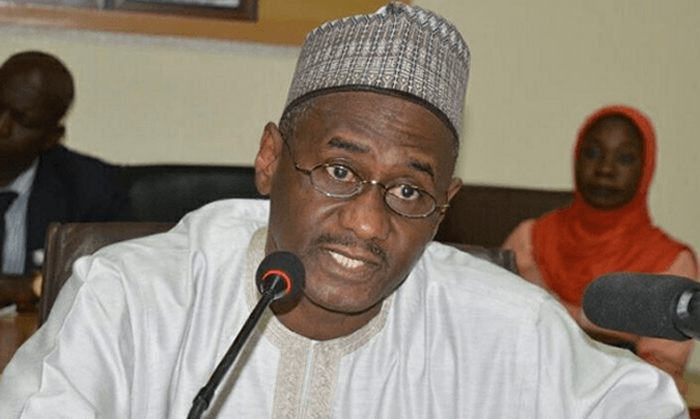Paragraph 1: The Accusation of Suppression and the Arrest
Usman Yusuf, former Executive Secretary of the National Health Insurance Scheme (NHIS), has leveled accusations against the Bola Tinubu administration, alleging a calculated strategy to suppress dissent and silence critical voices. He claims his recent arrest and detention were orchestrated to intimidate him into submission and deter him from speaking out against the government’s actions. The backdrop to this accusation is Yusuf’s arraignment in February by the Economic and Financial Crimes Commission (EFCC) on charges of alleged fraud. He pleaded not guilty to the five-count charge before Justice Chinyere Nwecheonwu of the Federal Capital Territory High Court. Yusuf’s contention is that the charges and subsequent detention are politically motivated, designed to muzzle his criticism of the current administration.
Paragraph 2: The Arrest Narrative and Treatment in Custody
Yusuf provided a detailed account of his arrest, describing the events of January 29th when individuals claiming to be EFCC operatives entered his home without presenting an arrest warrant. He recounted how they initially failed to properly identify themselves, only producing their badges after he questioned their authority. He was prevented from changing his clothes and his wife was blocked from bringing him a change of attire. Yusuf described being escorted in a bus, sandwiched between an armed officer and another operative, who celebrated the arrest as if they had apprehended a high-profile criminal. He emphasized the contrast between the alleged triviality of his supposed offense and the excessive force and celebratory attitude displayed by the arresting officers.
Paragraph 3: Detention, Bail Denial, and Allegations of Political Motivation
Following his arrest, Yusuf spent six days in EFCC custody before his arraignment. He claims he was then denied bail due to the presiding judge’s illness, a circumstance he finds suspicious. Following the bail denial, he spent 24 days in Kuje prison. Yusuf asserts that the denial of bail was a deliberate tactic employed to intimidate him and further suppress his dissent. He argues that bail is a constitutional right, except in instances of capital offenses or terrorism, neither of which applied to his case. He characterized the entire process – the arrest, detention, and bail denial – as a calculated move by the Tinubu administration to silence dissenting voices.
Paragraph 4: Yusuf’s Perspective on the Government’s Actions
Yusuf draws a parallel between President Tinubu’s past as a pro-democracy activist with the National Democratic Coalition (NADECO) and his current actions as president. He highlights the irony of a leader who once fought against military rule and advocated for democratic freedoms now allegedly engaging in suppressing dissent. Yusuf argues that criticizing the government is a fundamental right in a democracy and accuses Tinubu of attempting to transform Nigeria into a one-party state characterized by authoritarianism. He vows to resist such attempts and continue to exercise his right to free speech.
Paragraph 5: Yusuf’s Background and Previous Controversies
Yusuf was appointed as the Executive Secretary of the NHIS in 2016 by then-President Muhammadu Buhari. His tenure was marked by controversy, including a suspension in 2017 by the Minister of Health and another suspension in 2018 by the NHIS board, both related to allegations of corruption. He was eventually removed from his position in 2019. This historical context informs his current accusations against the government. While asserting his innocence in the current case, his past controversies inevitably add a layer of complexity to the narrative.
Paragraph 6: Implications and the Broader Context
Yusuf’s accusations raise important questions about the state of freedom of speech and political dissent in Nigeria. His case, if proven to be politically motivated, could signal a concerning trend towards the suppression of critical voices. The allegations also raise concerns about the potential misuse of institutions like the EFCC for political purposes. The ongoing legal proceedings and public discourse surrounding this case will undoubtedly continue to shape the conversation about democratic freedoms and accountability within the Nigerian political landscape. The outcome of this case could have significant implications for future instances of dissent and government response to criticism.














